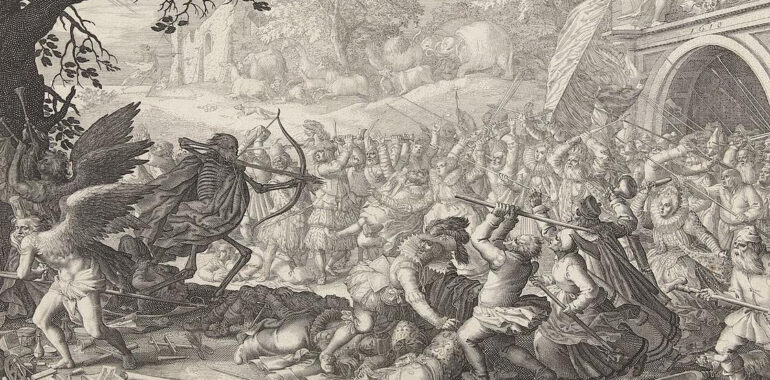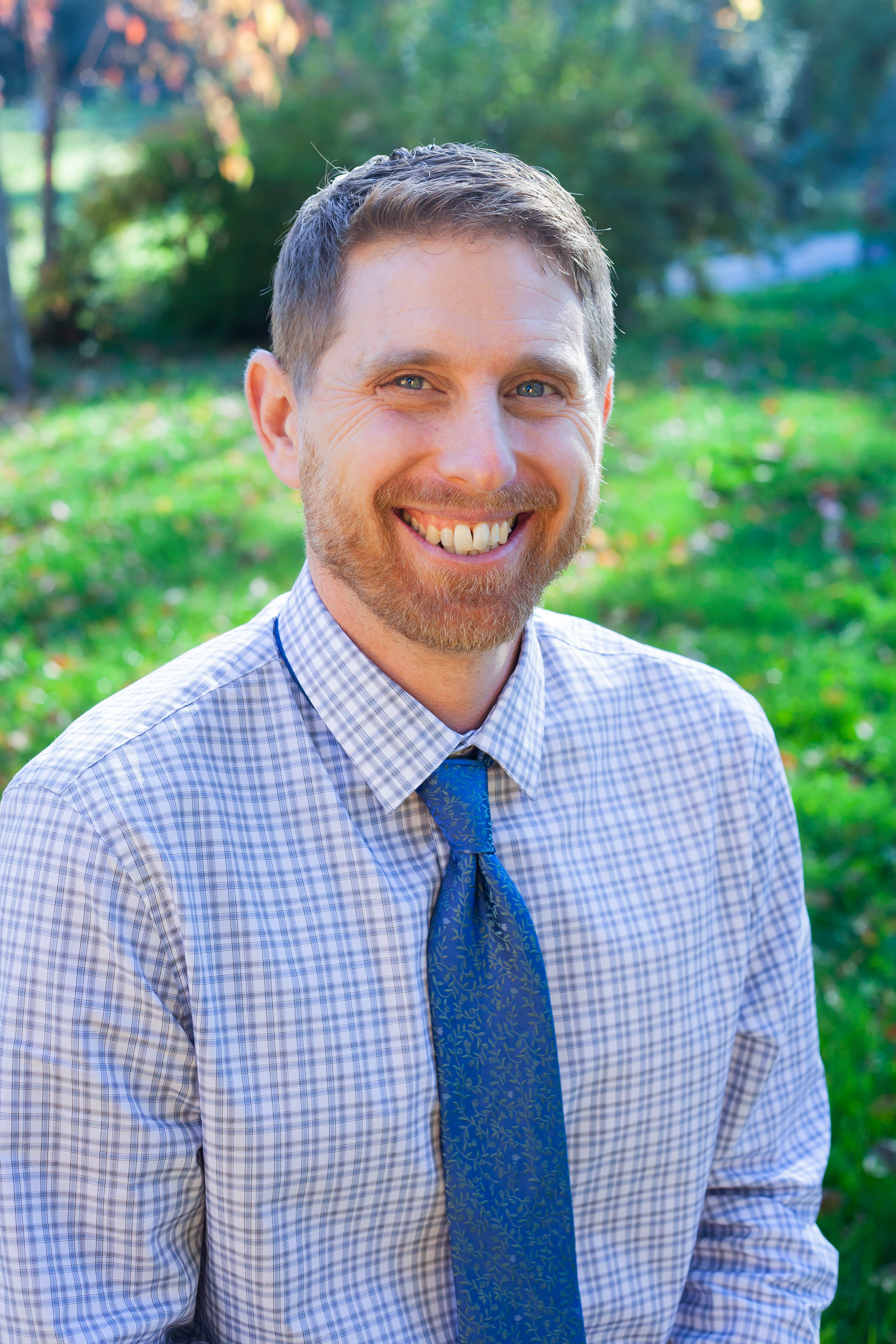A Theology of Fear and Death: Why the Grave Need Not Terrify the Believer

A Theology of Fear and Death: Why the Grave Need Not Terrify the Believer
Estimated Reading Time: 8 min
Patrick Slyman | April 27, 2021
Thanatophobia is the term for the fear of death. It’s the fear of the unknown afterlife, the anxiety of watching a loved one suffer, the dread of knowing our days have reached their end. For many, death is a frightening reality. It wields a big stick and threatens great loss.
Fifty-six million people die every year. One hundred and fifty people die every day. Six thousand die every hour. One hundred every minute. These numbers are too staggering to wrap our minds around. Every day, death stalks. Every hour, death strikes. Every minute, death wins. It’s no wonder death has been described as “the king of terrors” (Job 18:14).
Dying is our inevitable fate1—“What man can live and not see death?” (Psalm 89:48). Death shows no partiality: “the wise man and the fool alike die!” (Ecclesiastes 2:16). Death reveals our brevity (Psalm 103:15), exposes our weakness (Job 14:2), taunts us with its suddenness (Job 21:13), and mocks us with its power (Ecclesiastes 8:8). Death is an intrusion into God’s original design (Genesis 1-2). Perhaps the anonymous author captured the power of death best with these striking words:
He is a preacher of the old school, but He speaks as boldly as ever. He is not popular, though the world is his parish and he travels over every part of the globe and speaks in every language. He visits the poor; calls upon the rich and preaches to people of every religion and no religion, and the subject of his sermons is always the same. He is an eloquent preacher and he often stirs the feelings, which no other preacher can stir and brings tears to eyes that seldom weep. His arguments none are able to refute; nor is there any heart that has remained unmoved by the force of his appeals. He shatters life with His message. Most people hate him; everyone fears him. His name? Death. Every tombstone is his pulpit. Every newspaper prints his text. And one day, every one of us will be his message.”2
Linger over that last line, “And one day, every one of us will be his message.” It’s chilling. And true. Life is fleeting and death is real. It is required of us all (Luke 12:20), the appointment we will one day keep (Hebrews 9:27).
Even Christians Fear Death
It’s no wonder Jesus’ Apostles were gripped with fear when they heard His plans to head south to the village of Bethany (John 11:8). For weeks Jesus remained in the safety of northern Palestine, outside the reach of the Jerusalem council. Jesus did not even return to Judea when he heard of Lazarus’ sickness, though He loved him very much.2 But as verse seven opens, Jesus’ travel plans have drastically changed. “Let us go to Judea,” Jesus says (John 10:7). Did the Apostles hear Jesus correctly? Judea? The den of lions where Jesus had almost been arrested and murdered multiple times (John 5:18; 7:1, 30; 8:59; 10:31, 39)?
The Apostles are confused. But even more, they are fearful: “Rabbi, the Jews were just now seeking to stone You, and are You going there again?” (John 10:8). Hear the trembling in their words. They don’t want to die; they want to live. They want to avoid the grave, not tempt their fate. Thomas verbalizes the Apostles’ fear later in the story, “Let us also go, so that we may die with Him” (John 10:16). If Jesus leaves for Judea, Thomas dreads the inevitable outcome: Jesus will die—and so will they.
Is this not what we have seen over this past year? Christians fearing possible death. Anxiety because of an invisible virus. Fear locking believers in their homes. Nervousness keeping Christians away from corporate worship. Worry paralyzing plans and plaguing present lives. Forgetting Jesus’ words, “Peace I leave with you; My peace I give to you” (John 14:27), many believers have replaced Christ’s peace with worry. Forgetting Jesus’ call, “Do not let your heart be troubled, nor let it be fearful” (John 14:27), many have let fear burrow its roots deep within their hearts.
Needed Words
If there is ever a time the American church needs a theology of fear and death, the time is now. We need to rekindle our belief that death is not the “king of terrors” it postures itself to be. We need to be reminded that our goal in life is not to preserve our temporal existence but to prepare ourselves for future glory. We need to accept that our calling is not to escape the grave but to spread the Gospel.
We need to once again hear Jesus’ words to His fearful Apostles, “Are there not twelve hours in a day? If anyone walks in the day, he does not stumble, because he sees the light of this world. But if anyone walks in the night, he stumbles” (John 11:9-10).
Jesus is drawing from the common travel custom of the day. People traveled during the day, not the night. They wanted to see where they were going and not trip on the rocky roads or twist an ankle in the potholes along the paths. Daytime travel was even a way to mitigate the threat of bandits who often attacked the unsuspecting on the busy highways. It was a basic axiom: one traveled while it was light to ensure safety, avoid injury, and even escape death. A simple parable, but it teaches a profound principle.
We Will Not Die Before Our Appointed Time
The lesson is this: We will not die before our appointed time. Just as there are “twelve hours in a day,” there are a set number of days in each of our lives (Psalm 139:16). Jesus made a similar comparison in John 9:4, “We must work the works of Him who sent Me as long as it is day” (emphasis added). Day was analogous to Jesus’ ministry, His time on earth allotted Him by His Father; while night referred to Jesus’ death. As Jesus put it, “Night is coming when no one can work” (John 9:4), a picture of His arrest, trial, and crucifixion—when the sun would set on His earthly life. Daylight referred to life, nighttime referred to death.
In other words: As long as we are traveling (living) in the light (the days appointed to us by God), we have nothing to fear; we will not stumble, we will not trip, we will not be overtaken by bandits—we will not die. Just as God has set twelve appointed hours in the daytime, so too, God has assigned a certain number of days in our lifetime. Darkness (death) will never come early on God’s calendar. A lesson Jesus’ fearful Apostles needed to grasp.
There is No “Risk” in God’s Sovereign Decree
On the surface, Jesus’ return to Judea looked risky—not only for Him but also for those closest to Him. Retaliation from the religious leaders was a real possibility. But the reality of the situation was this: Jesus’ hour had not yet come (John 7:30; 8:20). Jesus was traveling in the appointed daylight hours and thus, He had nothing to fear. But this was not only true for Jesus—it was also true for His Apostles. Like Jesus, the sun was still shining upon them. Like Jesus, dusk was not yet. They too were living on a sovereign timetable, one where the sun never sets too early.
In God’s sovereign decree, there is no risk of dying before our appointed time. Every moment of every day has already been determined by God: “In Your book were written the days that were ordained for me” (Psalm 139:16). The number of our days has been decreed by the divine: “[Man’s] days are determined, the number of his months is with You; and his limits You have set so that he cannot pass” (Job 14:5).
Freed to be Faithful
This principle does not give us the freedom to be brash about our lives, or foolish about our decisions. Not dying before our appointed time does not give us a free pass to play Frogger on the freeway. But it does bring freedom to live in obedience to Christ without fearing our life could ever be cut short. That is why Jesus called His Apostles to walk by “the light of the world” (John 11:9) as He ended His analogy—a play on words since Jesus had recently used that same phrase to describe Himself: “I am the light of the world” (John 8:12, emphasis added).
In other words, the sovereignly determined sunlight of our earthly days is what frees us to walk in obedience to the light of Christ.
For the Apostles, that meant traveling with Jesus to Judea, knowing the deadly threats that awaited Him—and them. For us, it means something different, but the same principle applies: We walk in Christ’s light as long as it is day. We follow His commands as long as we have life. We pursue His glory—no matter the earthly threat, or the most doomsday prediction—assured that every one of our moments has been written in a book, secured by the power of our Savior.
Is It Possible to Move From Fear to Faith?
In a day when we are told that death is the worst thing that could happen to us, is fearless living even possible? Can we (personally) buck the trend and move from dreading death to living in the light of Christ? The answer is yes—and Thomas is the case in point. The same Apostle singled out in verse 16 because of his fear is the very disciple John quotes at the end of his Gospel: “Thomas…said to Him, ‘My Lord and my God’” (John 20:28).
Thomas learned the lesson. He confessed Jesus to be the Lord of life, the conqueror of death, and the God who rules every grave. So Thomas fearlessly preached Christ’s Gospel for the next three decades, until he was speared to death by pagan priests.4 Thomas-the-fearful became Thomas-the-faithful because he believed the sun would not set one moment sooner than God had ordained.
Is this not what our world needs to see, today? From us? Fearless Christians confessing Jesus to be the Lord of life—not trying to escape the grave, but living for the Gospel—until that last God-ordained hour the Lord grants. May we, like Thomas, learn Jesus’ lesson: we will not die before our appointed time.
1 Of course, the one exception is the rapture of the church which is an imminent event (John 14:1-3; 1 Thessalonians 4:13-18).
2 As quoted in John MacArthur, 1 Corinthians (Chicago: Moody Press, 1996), 441-42.
3 See a previous blog post, When God Says No To Earnest Prayers, Pt. 2, that explains why Jesus delayed His arrival to Bethany.
4 John Foxe, Foxe’s Christian Martyrs of the World (Chicago: Moody Press, n.d.), 34.

Patrick Slyman is a graduate of The Master’s Seminary (M.Div 2005, D.Min 2012). He currently serves as Teaching Pastor at Emmanuel Baptist Church in Mount Vernon, WA.

